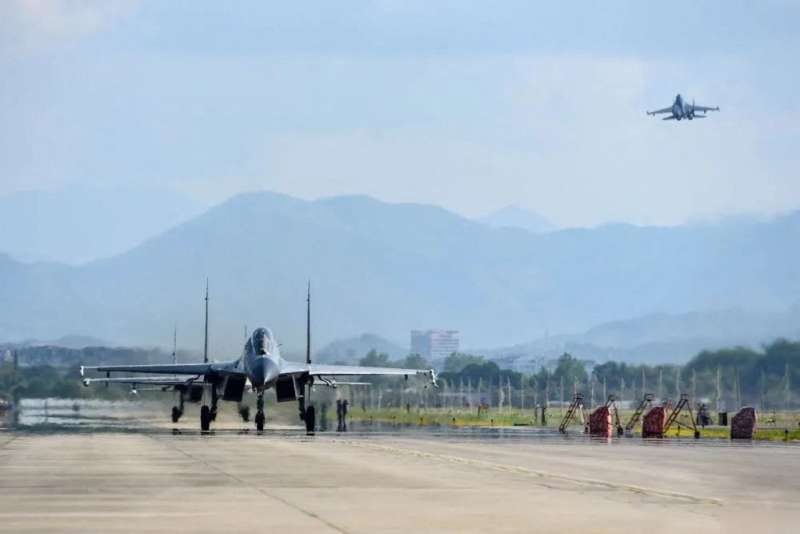Despite China later announcing more military drills in the area, Taiwan's Ministry of Transportation and Communications said on Monday that aviation traffic around the island is gradually returning to normal.
After U.S. House of Representatives Speaker Nancy Pelosi's trip to Taiwan, China last week conducted military drills that included the deployment of numerous aircraft and the firing of live missiles close by.
Some airlines changed their flight routes between Southeast Asia and Northeast Asia to avoid the drill-affected area, cancelling flights to Taipei in the process.
Airlines were instructed to avoid certain temporary risk zones during the exercises that surrounded a large portion of Taiwan, according to Beijing-issued notifications to airmen (NOTAM). On Monday at 2:00 GMT, the last NOTAM covering a portion of airspace east of the island expired and was not renewed.
On Monday, the Chinese military said it will conduct new exercises in the waters and airspace surrounding Taiwan, but no exact location was given, there was no new NOTAM, and there were no indications that airlines had changed their flight plans on the flight-tracking website FlightRadar24.
Prior to the Chinese military drills that started on August 4, Taiwan's transportation ministry said that the majority of regularly scheduled flights to and from the island had continued to run, with an average of 150 departures and arrivals each day.
After the final NOTAM was lifted, the number of planes passing over the airspace its controllers oversee gradually began to return to normal, the ministry stated in a statement on its website.
According to the ministry's announcement last week, some foreign airlines that regularly used the airspace instead took detours through regions controlled by Japan and the Philippines.
Korean Air Lines Co Ltd announced on Monday that it had resumed regular flight operations after cancelling flights to Taipei on Friday and Saturday and rerouting others to avoid the impacted area.
After employing alternative flight paths over the previous four days of drills, Philippine Airlines announced that it would resume using its regular routings for its flights to and from Taipei.
After the fresh Chinese notification, Korean Air claimed that it had not altered its flight arrangements; however, Philippine Airlines did not immediately react to a request for clarification.
Major military exercises frequently result in temporary airspace closures and route adjustments.
The manoeuvres by China divide Taiwan's claimed 12 nautical miles (22 kilometres) of territorial waters, which, according to Taiwanese officials, violates international law and amounts to a blockade of the island nation's air and seaspace.



